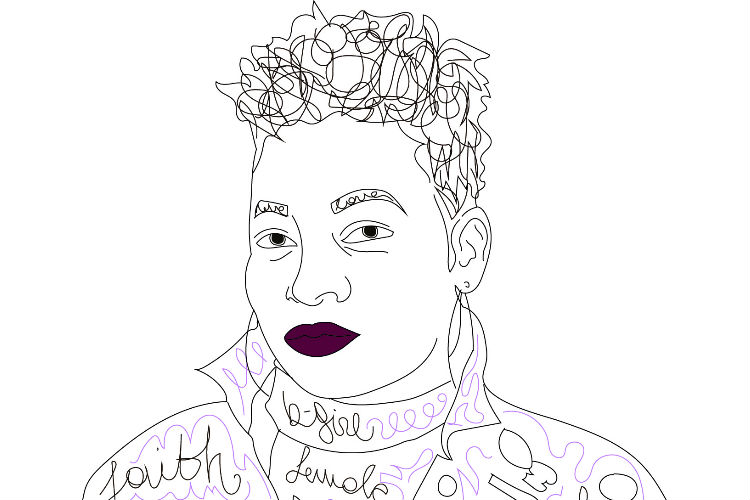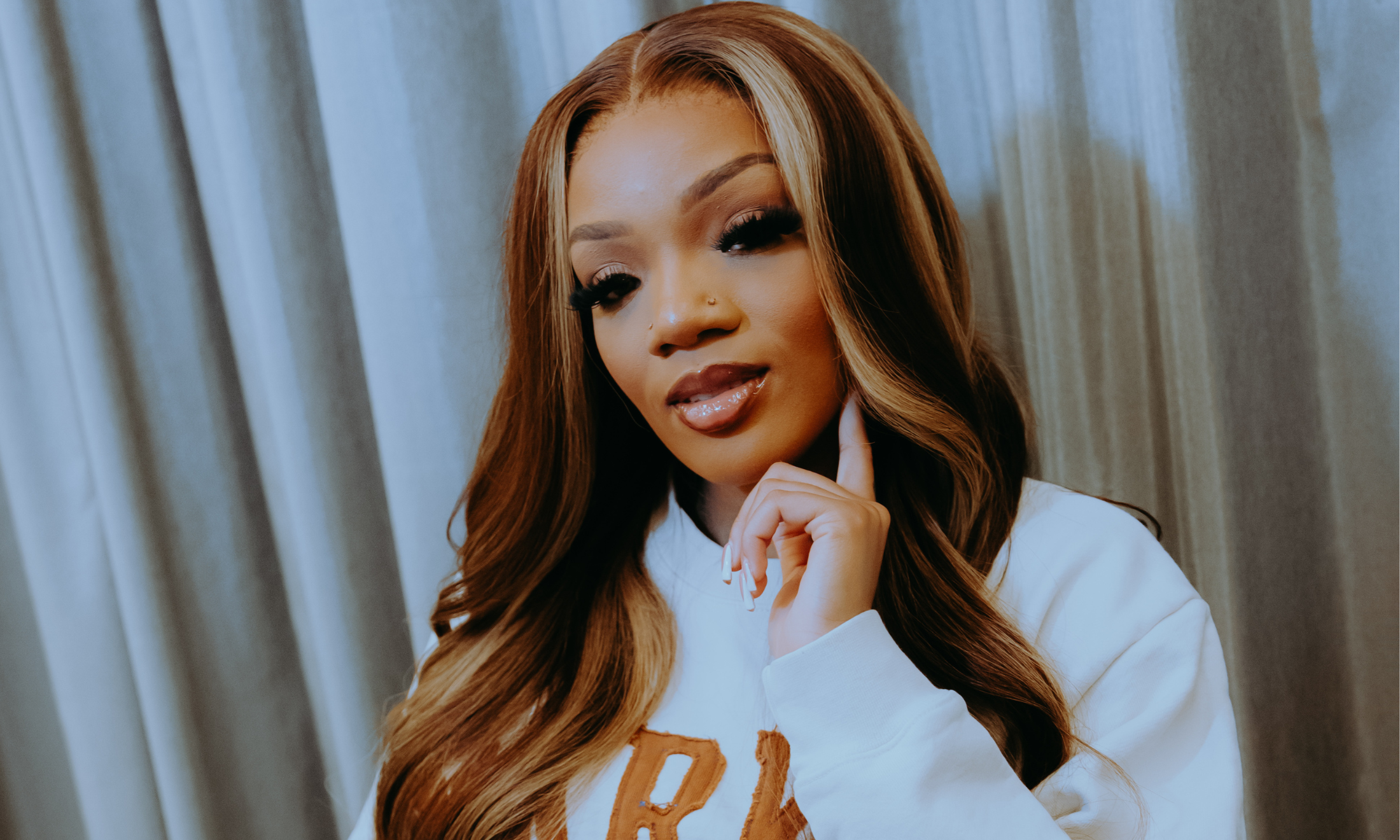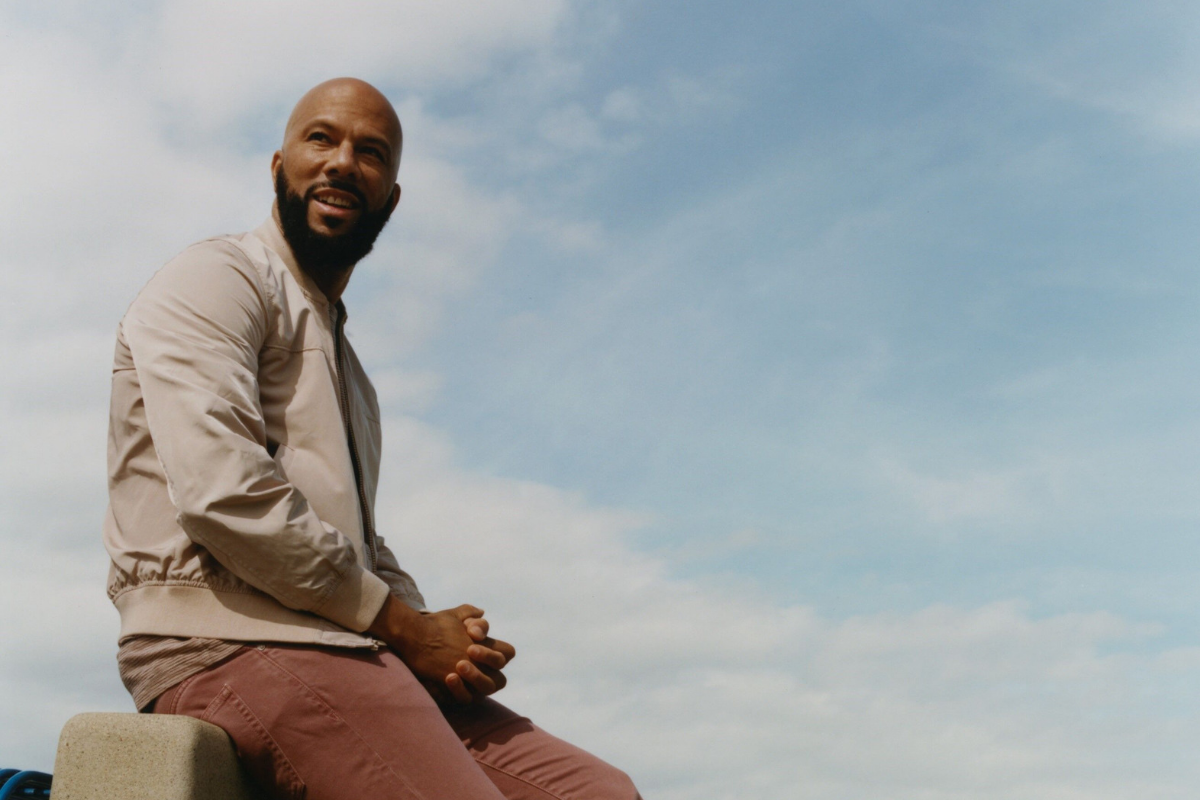
I am thankful to have had the opportunity to talk to Bahamadia, who is an inspiration for me and a key figure in the evolution hip hop. Bahamadia’s bars punch through every beat, both in her solo works and in collaborations with the likes of Lauryn Hill, The Roots, Erykah Badu and Talib Kweli. With Kollage being the first LP written and co-produced entirely by a female hip hop artist, she is a role model for me not only as an MC but also as a producer.
Shunaji: I am honoured to be supporting you at Jazz Cafe on 11 May…
Bahamadia: Oh wait, you’re the artist?! I was wondering when we were going to meet! I was hoping it would be in person but this is a cool start. You’re a journalist as well? That’s cool!
I’ve never conducted an interview before! It’s my first time, but gal-dem thought it would be a good idea for me to be the interviewer! And it’s a blessing.
My heart is smiling, this is so cool!
You haven’t been on tour in the UK for a while, right?
Well, over a decade. No, wait, close to it. I did Jazz Cafe with Jaguar Wright when she was on tour. I can’t recall the year but it was in the 2000s.
What do you expect coming back to London? Do you think your audience has changed?
I’m expecting to just be myself, and I know I’m drawing an extension of myself because we only draw the things that we possess. I’ve never concerned myself with who is going to be in attendance. I’m assured it’s going to be people I’m supposed to convey a message to sonically.
I wanted to ask you about your experience coming up in the hip hop community. How was it as a female MC? Did you experience any setbacks, or struggles, to establish your name and gain the respect you have today?
When I first started, having major exposure was really a lonely place. It was like a burden because I was aware that there were other female practitioners in hip hop – but we existed in different areas. The visibility wasn’t there. It projected an image that each one of us was a posterchild in the scene. But I always carried the flag and, as much as I could, brought light to other women I knew were just as deserving of the spotlight.
Do you think visibility for women in hip hop today has improved, compared to the period people like to define as the “Golden Era”, when you came up?
These days we’re awake. To do what we’re created to do is golden to me.
As far as visibility, the support and opportunities we’re afforded in the information age are plentiful. With the aid of social media platforms, we can organise and connect more quickly and be more effective in our goals, in terms of networking. The con to that is that there needs to be more camaraderie amongst women. As they say, “strength in numbers”.
I think that often the focus is more on survival than it is on wanting to see us all rise as a collective. There are instances where the effort to unite is genuine, but often it’s not.
Your music has developed in interesting directions. How has your creative process transformed over the years?
The objective for me is to always evolve. I don’t conform to the times, I adjust and give a different interpretation of myself in the context of where we are. It’s been a natural progression for me. These evolutions weren’t strategically planned, rather something I gravitated towards.
https://www.youtube.com/watch?v=TrPrH31cwT4
I like to always consider myself as being a student, where I’m learning and always receptive to whatever resonates within me and challenges me to be a better version of myself. I never position myself as someone who can potentially be “dated” in terms of projects or tours.
Sometimes it feels like accomplished artists isolate and idolise themselves from the rest of the community based on their own success. How do you think this affects young emerging artists’ mentality?
In Western standards, the youth’s voice is not celebrated as it should be. Young people may not be as experienced as older generations in terms of chronological time, but there are things that we can all deposit into one another. These are the sensibilities and moral standings I was reared with as a child.
Music is a platform and each person who starts off as “support” is part of a multi-dimensional experience. Roxanne Shanté helped me gain that healthy perspective when I was touring with her. The first tour I ever did was with The Fugees. I was coming from my bedroom studio and had never toured before. On the other hand, they’d made $10 million [sources suggest $6 million] for The Score album, but still opened themselves up to me.
All my experiences have been like that. I was fortunate that performing was presented to me in that way, as a group of people being paid to rock the mic for a crowd and then leave. I think it’s cool that we’re sharing the bill; and I do consider it sharing the bill. I don’t believe in headlining and things like that. I think of people that gravitate towards me sonically as an extension of myself.
There’s a bar in ‘Culture Cut’ from your album Good Rap Music (2005) that goes “It’s time to go against the grain like a bar of granola”. That cracked me up!
You know, I’m a foodie too! It’s a hand of humour!
It’s inspiring that you hold these views, as they show your artistic integrity. It’s a hard quality to maintain in this industry. What has been your relationship with record labels and intellectual property rights? Have they affected your freedom as an artist?
People always talk about the different components of hip hop culture: the breaking, djing and MCing – but they don’t talk about the element of entrepreneurship. Every practitioner, when I was exposed to hip hop, had the desire to own what they created.
I had a regional success that garnered the attention of other people which led to EMI at the time. However, I started assessing the components which made up a record label once I realised the business aspects associated with music making. I decided to own my own stuff once the deal dissolved. I didn’t want to go back to another label. I researched and talked to people in that same situation. That’s when I did the venture to Good Vibe Records, which was a 50/50 split. After that, I knew a little bit more and thought that I should take the risk.
At the end of the day, it is and was my intellectual property. I thought I should be owning it.
If I buy a house, I own the deed to the house. Why should I not own the things that are coming from my heart and that have made me triumphant? Should it be effort that I just give way? If anybody’s to put a price on my soul, it should be me.
As women, we experience certain pressures when it comes to balancing work, life and family. How has it been to be on tour and in the studio throughout these years?
I understood from the beginning that those people worked for me and that, ultimately, if the train is to run I should be the conductor. The schedule should be designed around my convenience. If my children had a recital or a graduation, I had to prioritise. I had to fulfil my parental duties, obligations had to be met.
If you had to select a track from your body of work which bears the most meaning to you in terms of artistic process and development, which would it be and why?
Two tracks in particular come to mind. One is ‘Glory’ from the Good Rap Music (2005) project. When I first started, I had a secular approach. I found myself as a born again Christian. In 1999 going into 2000 was when I felt I had a greater purpose with the music, once I came to accept Jesus Christ as my Lord and Saviour. Once I did that, I made ‘Glory’ to honour the Creator in that way and express what I feel music to really be: a form of prayer, and therapy as well.
The second track was ‘3 Tha Hard Way’. It came about because I looked around and never heard an authentic piece that was all female. Back in the day, everybody had posse cuts tracks involving successive verses by various rappers with their crews. I never had a crew, I was always a solo artist. But I thought it would be cool to have three girls rock on the mic, because something like had not been documented to my knowledge.
I’m just glad I had the courage to be myself and do what I wanted to do at the time. In hindsight, I realise how powerful it was to offer a platform to someone without any industry politics or crooked motives.
As an independent artist, it feels good to know that there are alternatives to record deals, especially since a lot of musicians become disenfranchised once they sign a contract. Many feel isolated and experience depression from being unable to truly express themselves due to monetary objectives.
That’s why transparency is important. In having a dialogue, we can find comfort and inspiration in knowing we are not alone. I feel compelled to share those aspects of my journey. I was fortunate that by design I did not fall under events that could generally be detrimental [to] one’s well-being and mental health. That’s only by design, I can’t even take credit for it – it’s something I just aligned with and accepted.
The rewards of being independent and self-sufficient are so much greater because you can look back and say, “I really did it my way, I didn’t compromise myself spiritually or any other way”. We never see ourselves how we truly are in real time but rather as the possibilities of what we can become. This is what I mean by a healthy dialogue and the value of mentorship. I’ve also learned from and edified on what you’ve shared with me. I’m glad gal-dem orchestrated this!
Thank you so much for taking the time! I look forward to meeting you in person this Friday and I’ll have my Kollage vinyl copy there for you to bless.
Bahamadia will be performing at Jazz Cafe on 11 May, sharing the bill with Shunaji. Tickets are available here









